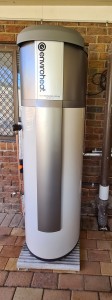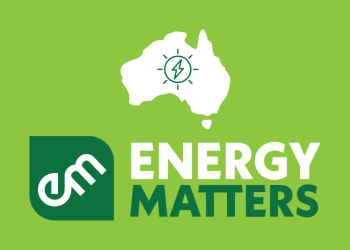If you’re weighing up whether to get a heat pump hot water system instead of a conventional electric hot water system, you’ve got quite a few things to consider. Below I’ll walk you through what each system is, how they compare in terms of costs, performance and suitability and ultimately whether a heat pump is “better” — which depends on your home, usage and budget.
What’s going on: How each system works
Electric hot water system
Pros: simpler technology, lower upfront cost, minimal site requirements.
Cons: less energy-efficient (because all the heat is produced by the electric element rather than extracted from ambient heat) and therefore higher ongoing running costs.
Heat pump hot water system
Because of this, heat pumps can be several times more efficient (for each kWh of electricity you pay for you get many kWh of heat).
Pros: lower running costs, better for environment (less electricity used, lower emissions if grid is clean).
Cons: higher upfront cost, may have installation/site constraints (e.g., space for outdoor unit, airflow), possibly less efficient in cold climates.
Comparing key factors
Here’s how they compare side-by-side:
| Factor | Electric hot water | Heat pump hot water |
|---|---|---|
| Efficiency / energy use | Lower efficiency: Uses electricity to heat water directly. | Higher efficiency: extracts ambient heat so you use less electricity per litre of hot water. |
| Upfront cost | Lower cost to purchase and install. | Higher cost upfront for the unit and installation. |
| Running (ongoing) cost | Higher electricity cost for same volume of hot water. | Lower running cost: the efficiency gains pay back over time. |
| Environmental impact | If electricity comes from fossil fuels then higher carbon impact. | If electricity is from renewables (or grid improving) then lower greenhouse gas emissions. |
| Installation/site constraints | Very straightforward in many homes. Can be installed inside or outside | Needs outdoor location with good airflow. |
| Suitability for Australian conditions | Works almost everywhere; simple. | Works well especially in most climate zones; payback better if electricity prices are high and you use a lot of hot water. |
Is a heat pump better? It depends.
The short answer: yes, in many cases heat pumps are the better option — but not always. Some key deciding factors include:
-
How much hot water you use: If you have a large household and high hot water use, the savings from a heat pump will be more noticeable.
-
Electricity cost & tariff: If you’re on a tariff where electricity is expensive (or you have solar panels) the efficiency benefits become stronger.
-
Upfront budget: If you can afford the higher upfront cost, you’ll likely get better value over time.
-
Installation/site feasibility: You need suitable space (outside, good airflow) for the heat pump unit. If your location is constrained, electric might be simpler.
-
Climate: Brisbane has a reasonably warm climate, so a heat pump would perform quite well (ambient air being warm means the unit doesn’t have to work as hard).
-
How long you intend to stay in the house: Because payback takes time. If you’re planning to move soon, you might not recoup the extra upfront cost.
-
Environmental goals: If reducing your carbon footprint matters to you, a heat pump is more future-proof.
What about the downsides / risks
-
Upfront cost: If you buy a heat pump and don’t stay long enough to recoup savings, you may not get full benefit.
-
Installation complexity / site suitability: Need space outdoors for the unit.
-
Maintenance: More moving parts (compressor, refrigerant cycle) mean more potential maintenance than a simple electric element system.
-
Behavior & usage matter: If you use very little hot water then the savings from a heat pump shrink. The savings are proportional to usage.
My verdict for you
Given your location (Brisbane / Queensland) and assuming you have a typical house with moderate to high hot water use, I’d lean strongly toward recommending a heat pump hot water system, with some caveats.
-
Because the climate is favourable — mild enough that a heat pump will operate efficiently much of the year.
-
Because electricity costs are significant and saving on those ongoing costs is attractive.
-
Because environmental benefits are real.
However — if your budget is tight and you expect to move house within a short period, or if the site for a heat pump is not ideal (e.g., no good outdoor space), a standard electric hot water system remains a viable fallback.
What to look for / next steps
-
Check whether there are rebates or incentives in your region (Queensland / Australia) for installing heat pump hot water systems.
-
Get multiple quotes including installation + running cost estimates for both systems (electric vs heat pump) for your household usage.
-
Ensure the installation site is suitable (airflow, access).
-
Consider combining with solar PV if you have or plan to install it — because if you can run the hot water system partly from solar it improves the economics for both systems.
-
Think long-term: how many years you plan to stay in the home — and factor in running costs across say a 10-15 year horizon.
-
For electric system: you might consider time-of-use tariffs or diverting solar power to hot water to reduce operating cost.
So: Are heat pumps really better?
Yes — they offer significant advantages in terms of running cost, efficiency and environmental impact compared to conventional electric hot water systems. For many homeowners (especially in favourable climates like Brisbane) they are a smart investment.
But “better” only if the conditions are right: usage, installation site, upfront budget, and how long you’ll keep the system all matter a lot.
Contact King Solar Man on 0416 075 682 for further advice.
Michelle Testa2025-10-24T11:00:06+00:00
Go to Top















